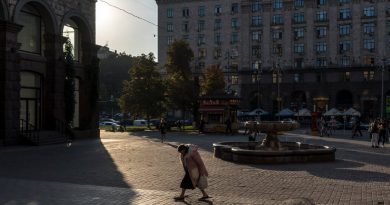Israel-Hamas War: Gaza Truce Extension Faltered Over Terms of Prisoner-Hostage Exchange

When Alaa Abu Sunaima was jailed in Israel last year, the Gaza Strip was in a period of relative calm. By the time he was released, it had been devastated by a relentless campaign of Israeli airstrikes and a ground invasion.
Of the 240 Palestinian prisoners released so far in exchange for Israeli hostages held by Hamas, Mr. Abu Sunaima, 18, is the only Gazan and the only person sent back to Gaza, according to lists released by Israel and the Palestinian Authority. His home is no longer inhabitable; it was badly damaged by bombing after his parents and siblings fled their home in Al Shouka, a village near Gaza’s southern border.
Now, like the vast majority of Gazans, they are internally displaced, unable to return home or to leave Gaza, living in a makeshift shelter in Rafah that lacks basic necessities.
Despite it all, Mr. Abu Sunaima’s return this week, during a brief respite from bombing thanks to the weeklong truce that included his release, was still joyful. He was greeted with warm hugs from his family and friends.
“I don’t have words to describe how I felt when I arrived in Gaza,” he said. “I wish all prisoners could feel the same.”
The temporary peace, which ended Friday morning, allowed Mr. Abu Sunaima to travel back to Al Shouka to survey the damage. His room was a mess of debris; parts of the roof had collapsed onto the floor, leaving the house open to the elements. The walls were pockmarked with holes. He was struck by the extent of the destruction.
“It was built up before I was detained,” he said, adding: “But with this war, there is no construction at all, it’s finished.”
He also learned that a friend, Ammar, around his age, had been killed.
Mr. Abu Sunaima was a high school student when he was arrested during a protest at the Israeli border in June 2022. He was convicted of entering Israel without a permit and possessing weapons, ammunition or dangerous explosive material, and sentenced to two years, according to data from the Israeli Justice Department.
The Israeli list of 350 prisoners and detainees who could potentially be released under the hostage exchange deal included only five people from Gaza; the charges against all five included entering Israel illegally. The other four have not been released, according to a review of that data and lists of released prisoners put out by the Palestinian Authority’s office for prisoners’ affairs.
The vast majority of prisoners on the list were instead from the West Bank and East Jerusalem, where Israel arrests people regularly. By contrast, Israeli forces were not operating openly in Gaza before Oct. 7.
Mr. Abu Sunaima’s father, Fathi, 40, said that Alaa was the oldest of his five children. The boy had “always been kind and never been a troublemaker,” he said.
“I don’t know what happened to him at the time,” he said of his arrest. “He must have listened to others.”
While in prison, Mr. Abu Sunaima initially had contact with his family once every two weeks, but more recently, could receive visits only once every two months, he said.
He and his fellow prisoners had learned of the swap of Palestinian prisoners and detainees for Israeli hostages from listening to the news on a smuggled radio, he said. Conditions in the prison had grown more harsh after the war began. Guards later beat the prisoners and confiscated the radio, he said.
On Sunday morning, Mr. Abu Sunaima was told he would be moved, and he anticipated that he would be released. He said he was told to change into clothes from the Red Cross, and a guard hit him when he refused to strip. He then waited in a locked cell for about eight hours, he said, without food or water. Mr. Abu Sunaima said he was made to sign a document, but he did not know what it said.
Now the Abu Sunaima family is living in the Rafah shelter where they fled at the start of the war. They are among the nearly 80 percent of Gaza’s population of 2.3 million who are displaced, according to an estimate by the United Nations.
The territory is facing dire shortages of water, food, medicine and fuel amid Israel’s continued tight restriction of vital supplies. Aid groups call it a humanitarian crisis that is evolving into a public health disaster.
“We lack everything here,” the elder Mr. Abu Sunaima said.
He had learned from a friend on Sunday that Alaa’s name was on the list of those who would be released. He first went to look for him in Rafah, and then found him at a Red Cross center in Al Mawasi, a coastal area near Khan Younis.
“I could not believe it when I saw him,” he said.
Abu Bakr Bashir, Ben Hubbard and Rawan Sheikh Ahmad contributed reporting.
Source – NY Times




